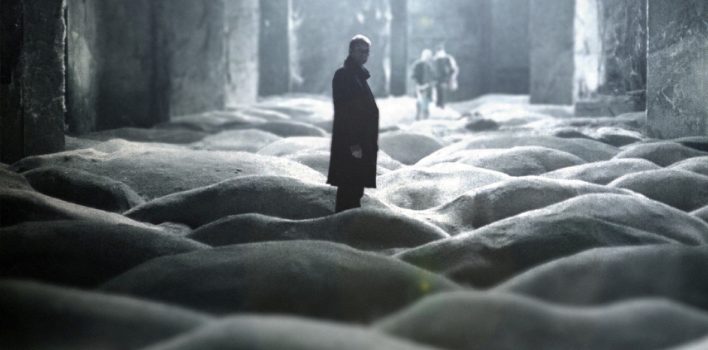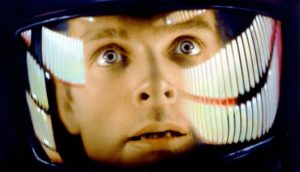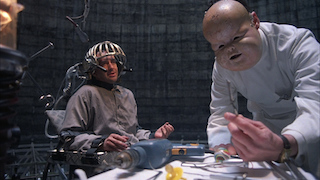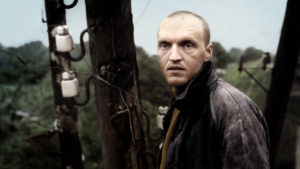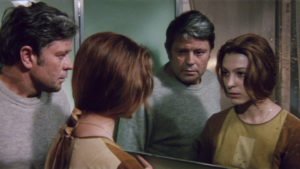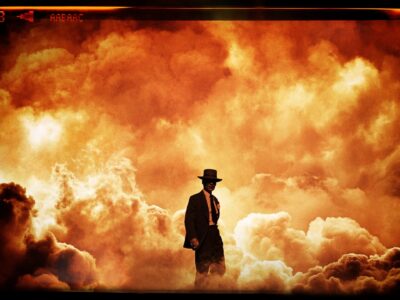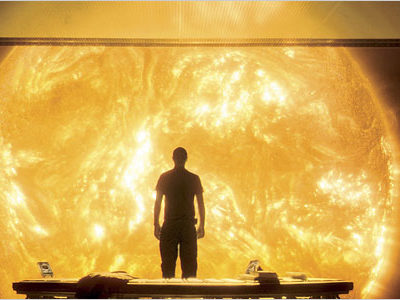Top 5 Cerebral Sci-Fi Movies
With the recent premiere of Denis Villeneuve’s critically-acclaimed Arrival and the forthcoming release of Passengers (2016), now seems like as good a time as any to round up some of the best cerebral Sci-Fi in the galaxy. These films are more than cool spaceships and big explosions; they’re here to remind us that, as we like to say here at Reel World Theology, “entertainment is not mindless.”
5) 2001: A Space Odyssey (Kubrick, 1968)
I freely admit that Kubrick’s magnum opus doesn’t resonate with me on a personal level as much as the other films on this list, but far be it from me to deny this cinematic icon a spot on this list. No only did 2001 prove that big-budget, ambitious and heady Sci-Fi could find a market in the U.S., it also influenced a whole generation of filmmakers, like Spielberg and Lucas. The film is in its entirety a visual poem, an ethereal filmic achievement for the ages.
4) Brazil (Gilliam, 1985)
Terry Gilliam is most widely known for his work on a little film called Monty Python and the Holy Grail (1975), so it should come as no surprise that the director infuses his zany comedic sensibilities into his 1985 dystopian film about a lowly technocrat who becomes embroiled in a terrorist plot. Brazil is also an incredibly thoughtful and affecting film. Film critic David Sterritt elaborates Gilliam’s masterpiece quite nicely and succinctly, so I will leave you with his words:
“Its story glides effortlessly from knockabout comedy and political satire to dreamy romance, rambunctious fantasy, and dystopian science fiction. Its verbal and visual wit remain as incisive as ever, and the themes it explores—social alienation, terrorism, the hazards of technology, and the bureaucratization of absolutely everything—are more urgent now that when the film premiered in 1985.”
3) La Jetée (Marker, 1962)
Chris Marker’s 1962 short film about a man who travels back and forth in time in order to save humanity following WWIII is popularly known as the inspiration for Terry Gilliam’s 12 Monkeys (1995), yet it was also highly influential for virtually every time travel film that followed in its wake. Marker’s La Jetée unfolds primarily through still images, accompanied by voice-over narration and an evocative score, and its rich symbolism and formal composition imbue the 28-minute film with an indelible richness. It is wonderfully fitting that a film about time travel should defamiliarize our comfort with the motion picture by using still images to let time unfold before our very eyes.
2) Stalker (Tarkovsky, 1979)
Following three men who journey across a (possibly) post-apocalyptic landscape to reach The Zone, a mysterious place of alien occursion that harbors a room that reportedly grants entrants a single wish, Stalker is unique even among Tarkovsky’s filmography. There is almost no sense in which the film feels or looks like conventional science fiction, but this is fitting given Tarkovsky’s predilection for liminal spaces and imagery. Indeed, Stalker is delightfully confounding and perplexing on a number of levels. For one, it simultaneously contains some of Tarkovsky’s most action-y sequences and some of his most delicately contemplative compositions. For me personally, it is Tarkovsky’s most intellectually-stimulating work. Noted Tarkovsky scholar Robert Bird’s analysis of the film’s philosophical underpinnings is illuminating here:
“The Zone, then, is the quintessence of Tarkovsky’s spaces: a locus of experience formed of inquisitive human gazes and an uncanny impersonal gaze that cannot simply be identified with the camera. The Zone is where one goes to see one’s innermost desires.”
Stalker’s contention that our desires and affections may not be what we think is haunting indeed.
1) Solaris (Tarkovsky, 1972)
Based on the eponymous novel by Stanisław Lem, Solaris is centered around the enigmatic psychologist Kris Kelvin (Donatas Banionis), who is sent to a space station orbiting an alien planet in order to investigate the death of a crew member. The film is Andrei Tarkovsky’s most famous and internationally renown masterpiece, and for good reason. It is ultimately an incarnation of the maxim he set forth in his autobiography, Sculpting in Time: “Never try to convey your idea to the audience — it is a thankless and senseless task. Show them life, and they’ll find within themselves the means to assess and appreciate it.” With it’s measured pace (and a hefty runtime that approaches three hours), staid visual tone, and oblique narrative, Solaris the quintessence of cerebral Sci-Fi. It is unafraid to make demands of its audience, yet it never ceases to reward those who visit it again and again.


